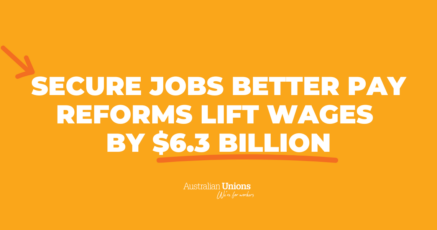Last month, the Federal Government announced over 850 changes to the Medicare Benefits Schedule that would come into effect from July 1.
These changes, pushed through in a short time frame and in high numbers which necessarily limit public scrutiny, are part of a longer pattern of Liberal Government challenge to Medicare. While the changes have been presented as leading to positive outcomes for patients, such as increased rebates for some procedures, the high number of changes conceals the mixed bag that these reforms entail for patients. The speed with which the high number of changes has been pushed through has meant that many clinics and surgeries have been placed under additional pressure to quickly figure out the impact of complex changes to billing systems. This in turn has made it more difficult to obtain a clear picture of who will be affected, and to what extent.
The overall impact, when it becomes clear, will of course be important to assess, but it is also important to consider the impact of how these “reforms” have been pushed through, and what this reveals about Coalition attitudes to Medicare. Rushing through a barrage of complex schedule changes with limited transparency can hardly be seen to reflect a considered and responsible investment in a system already under strain.
Viewing the Coalition’s Medicare policies in a longer context, too, makes it clear that it is crucial to maintain vigilance in defending Medicare not only from overt attacks but also from being strained, weakened and undermined. Despite claiming their commitment to Medicare is “rock solid”, the Liberal Party consistently opposed Medicare from its establishment, and has repeatedly sought to limit and curtail universal access to quality healthcare in favour of expanding private healthcare.
In 2016, the Australian union movement ran a sustained campaign, later adopted by Labor, defending Medicare from the challenges posed by the Coalition. Despite being dismissed in some quarters as the “Mediscare” campaign, this campaign created a climate where Coalition incursions on Medicare were much more difficult for a short period. Only a few years later, however, in the midst of a pandemic, the Government is choosing to rush through schedule changes that add complexity to the system, increase administrative costs, and which fail to target the most obvious areas of need, including aged care, mental health, and specialist care for chronic conditions.
This pattern can be seen in other high-profile policy fights over the years – such as the introduction of WorkChoices, and the privatisation of Medibank Private. Both were proposed Liberal Policy sets that were thoroughly challenged by Labor, the union movement, and wider groups concerned about the erosion of worker rights and of crucial state infrastructure. Both policies have been defeated multiple times only to re-emerge under a later election cycle, or under another name – as much as in 2014 Tony Abbott eventually claimed that WorkChoices was “dead and buried”, the Liberal Party remains committed to what is euphemistically termed “industrial relations reform”, but which in reality has eroded workers’ rights and conditions. The privatisation of Medibank Private, the publicly-owned private health insurer which functioned as a check on the insurance sector, was one which consistently emerged in Liberal Party policy; defeated in the 2007 Federal Election, it returned in 2014 under Tony Abbott, along with an expensive PR and marketing campaigns to convince the electorate.
This policy pattern illustrates the importance of keeping up pressure. Rather than acting to strengthen Medicare more genuinely, such as by providing a simpler expansion of telehealth on the MBS schedule, the Coalition has sought to rush through a barrage of changes with limited transparency. Despite the spin of a “rock solid” commitment to Medicare, any genuine commitment would involve fuller subsidies and expanded access to healthcare, rather than reinforcing the labyrinth of rebates and scheduling that complicate healthcare and build in exclusions. Ongoing vigilance and defence of public healthcare, and ensuring that haphazard “reforms” are held to scrutiny, are crucial to ensure that past hard-won victories are not temporary ones.







SHARE:
Protecting our healthcare system – why Medicare reforms need greater scrutiny